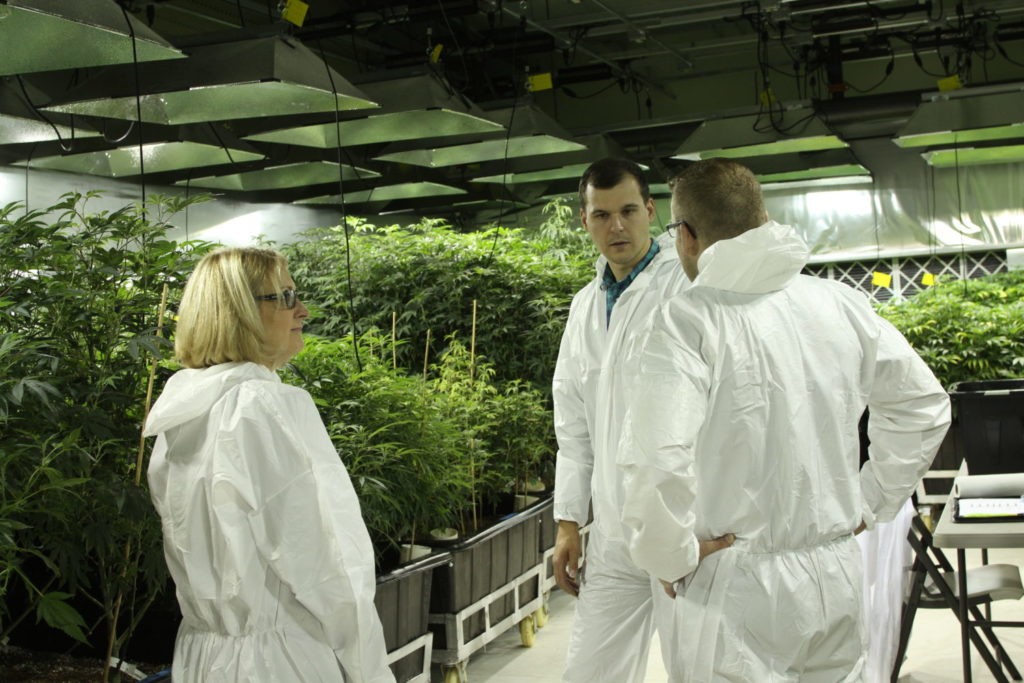News & Politics
Just How Big a Deal is the Legal Pot Job Market?
Currently, in the U.S. there are more individuals employed within the legal cannabis industry than there are Massage Therapists and Dental Hygienists. Wrap your mind around that! Employment in the cannabis sector is ablaze and the job surge is showing no signs of burning out.
Evidenced by the report released by Marijuana Business Daily called the Marijuana Factbook 2017, a comprehensive analysis on the impact of the marijuana industry in the U.S., employment growth shows no sign of stopping as marijuana legalization spreads.
As of 2017, the cannabis industry now employs 165,000-230,000 part-time and full-time workers across the country in legalized states.
The following is some interesting information, statistics and trends that show that cannabis is a crucial cultivator for employment growth in the United States.
More Jobs than Manufacturing
As many Americans know, the country was largely built on the manufacturing industry, and still remains a strong part of the labor market in the country. Not for long.
It’s expected that by 2020, states who have legalized cannabis will see the number of jobs available in the cannabis industry surpass the jobs available within manufacturing. This doesn’t even account for the states who are yet to legalize.
In times where job security isn’t always promised and communities are feeling the pressure of companies taking their businesses abroad, or folding under pressure of reduced sales, cannabis employment continues to grow.
Cannabis Employment Goes Beyond “Plant Touching”
Some may confuse cannabis employment with actually having physical contact with marijuana plants, but this assumption is short-sighted.
From marketing firms, to legal representatives, to POS systems, to investor networks, to data and analytics companies, to just name a few, the cannabis industry has no shortage of people and firms eager to serve it.
“Plant touching” jobs range from growers, to harvesters, to those who make edibles to those who sell the products within cannabis dispensaries, and in fact do make up most of the industry. Yet more companies are seeing the potential of the “green rush” and adding the cannabis industry to their portfolio of products and services.
Doors are Open for Many Americans
As Troy Dayton reported to Forbes, 21% of Americans are living in legalized states, where that section of Americans will have the freedom to consider career options in cannabis. These Americans are seeing the promise of dollar signs, just like they did in the not so far past.
The cannabis industry is growing quicker than that dot-com boom of the 1990s, which saw 22% annual growth to the U.S. GDP in its thriving years, whereas the legal cannabis industry is projected to contribute to a 25% growth by 2020.
Like the dot-com boom, investors are especially eager to place their money where the technology is, seeking opportunities to invest in new and innovative testing or growing technologies. Techies will be keen to get on board.
Cannabis College is a Thing
The education sector is responding to the need for cannabis businesses to have a talented pool of employees by providing high-level cannabis training programs to the cannabis industry.
Most notable is Oaksterdam University, which has graduated over 30,000 alumni from across the globe in subjects focusing on horticulture and business but also trains specific cannabis business roles like budtenders.
While cannabis education is yet to fully permeate accredited universities and colleges (for instance, you won’t be getting an Masters in Marijuana Horticulture from Harvard anytime soon), the availability for training in cannabis is vast.
The Cannabis Industry Still Has Far to Go
Amongst all the growth and indications that the cannabis industry shows no signs of ever stopping, cannabis businesses are still falling short in their ability to fully execute the financial, HR and payroll processes they need.
With job creation being a large part of the current federal administration’s platform, the country should be hurrying to legalize quicker to allow the proper infrastructure to be built. Unfortunately, this is not the case.
While there has recently been an indication that Attorney General Jeff Sessions has little power for crackdown on state-level cannabis businesses, marijuana still remains illegal at federal levels. This makes some investors and support services wary when dealing with marijuana businesses, especially banks and other financial institutions.
An inability to get bank accounts through which they can pay their employees sometimes has cannabis businesses needing to resort to “cash” arrangements to just to get their staff fairly paid. Better solutions need to be arrived at for this industry to operate within the legal tax laws across the country.
Nonetheless, these last few years have proven that the national cannabis industry is eager to work through the kinks so to allow the projected $17 billion produced by the legal cannabis industry by 2021 to be realized.
Could a new career path be right around the corner for you?

